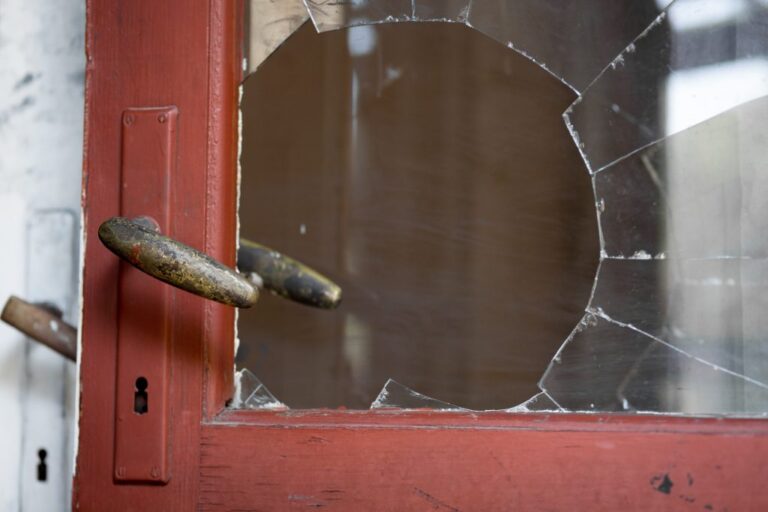You can also listen to this podcast on iono.fm here.
ADVERTISEMENT
CONTINUE READING BELOW
Download the free LiSTN audio app on Google Play, Apple or here.
Interview starts at the 13:57 mark
JEREMY MAGGS: Let’s continue with crime now. There’s a new report by the World Bank that says the impact of crime on South Africa’s economic prospects is both high and broad-based. All of this is contained in the fourteenth edition of the South Africa Economic Update entitled Safety First: The Economic Cost of Crime in South Africa.
It’s estimating, and wait for this figure, it’s costing the country something in the region of 10% of GDP annually in terms of stolen property, protection costs, encompassing security and insurance, and missed economic opportunities.
Lead report author, World Bank senior economist Ms Bénédicte Baduel, is with us now. Thank you very much for joining us. So expand on that for me a little bit if you can; how is crime significantly impacting the economy and which sectors, in your opinion, are most affected?
BÉNÉDICTE BADUEL: Well, thank you very much for having me. So indeed, we’re launching today our new economic update report. First let me tell you why we look at the cost of crime. We also look at South Africa’s economic trajectory, and then we see that it’s written to a very weak trend that can characterise the country over the last 15 years and that there is a need for structural reforms to boost growth and create jobs.
We do see that crime, which is on everybody’s mind, has a potential very high impact on the economy. However, we found very few studies that were trying to quantify those costs. So what we’re doing in this report is to try to look at the cost that we’re able to quantify and sum them up to try to get an overall impact on the economy.
Read: ‘Organised crime is the biggest threat to our economy’
So, as you’ve mentioned, we find that the overall cost is at least 10% of GDP. It comprises of what we call transfer costs, which are the direct losses that households and businesses are suffering from theft and robberies, and that’s about 3% of GDP. We have protection costs, which are very high, around 4% of GDP, as both firms and households try to protect themselves.
And we have the last bucket, which is the most difficult to estimate, which is the opportunity cost, and that comprises of all the missed economic opportunities as a result of crime.
So if you take, for example, copper theft on infrastructure networks, it damages electricity infrastructure, telecommunication and transport. That has an implication for the functioning of the economy.
Overall, these costs are very large and because we focus on a subset of only economic crimes and we don’t have data to quantify everything, this estimate is a lower … value.
JEREMY MAGGS: Let’s look at that 10% if we can; it is a staggering amount. Are you able to benchmark this for us and tell me how South Africa’s situation compares with global trends in crime and the economic impact?
BÉNÉDICTE BADUEL: So there is a lack of comparable data internationally. We cannot do that for all the costs. However, for example, for firms we use a survey that is done by the World Bank, which is called the Enterprise Survey, and that is done in a lot of countries, and it has questions on crime and security spending.
Read: Robberies surge as criminals take advantage of South Africa’s power outages
ADVERTISEMENT
CONTINUE READING BELOW
So for these specific costs to the formal business sector that are the direct losses in terms of firms … to crime and the cost of security, we do find that these costs are particularly high compared to other countries.
JEREMY MAGGS: Based on your study, are there effective policy measures that you can recommend be implemented to reduce crime in the country?
BÉNÉDICTE BADUEL: Yes, the goal of this type of report is not to provide prescriptive policies, but we have a policy discussion. First, it’s important to highlight that crime is a multi-dimensional concept and so it requires intervention across a range of areas. But definitely, increasing or restoring the capacity of the police and the justice institution to investigate, solve, and prosecute crimes is a priority.
Read: Link between crime and politics in South Africa raises concerns about criminal gangs taking over
For South Africa, we’ve seen a decline in that capacity and that makes, in a sense, crime more attractive or it doesn’t deter crime because the cost of committing crime compared to the benefits doesn’t appear very high.
However, to sustainably reduce crime, we also see that you need to address root causes linked to poor socioeconomic outcomes. So that requires again boosting higher and more inclusive growth.
Also, we do have in the report some examples of interventions internationally that have been successful. We see that violence prevention can also be scaled up to support crime reduction, that has worked in other countries.
JEREMY MAGGS: The difficulty, of course, is to strike a balance between immediate action and long-term strategies to combat crime.
BÉNÉDICTE BADUEL: Yes, exactly. So I think that there are measures that can be taken in the short term to strengthen the police and justice system. But, as you know, addressing social fragmentation, high inequality that requires (broad-based) reforms to increase the economic opportunities for South Africa. In the first chapter of the report, we discussed the recent development and outlook, it touches on that growth and development trajectory and what can be done to improve it.
Read: SA transport minister robbed in highway ambush
JEREMY MAGGS: World Bank senior economist, Bénédicte Baduel, thank you very much for joining me on Moneyweb@Midday.

